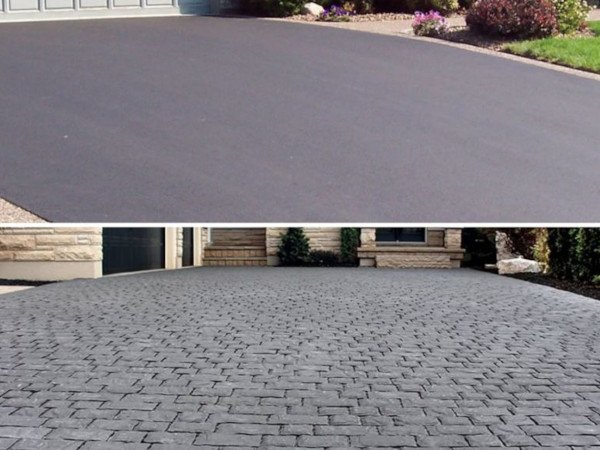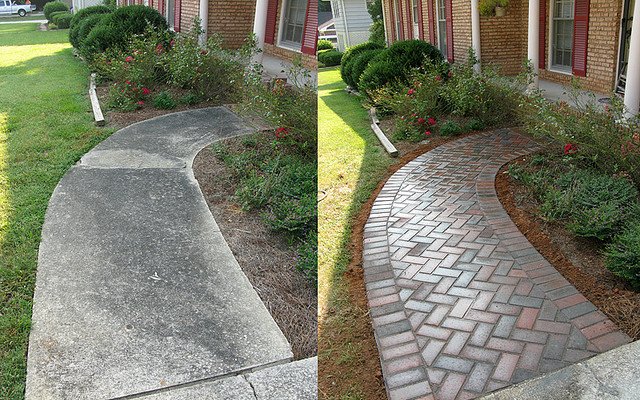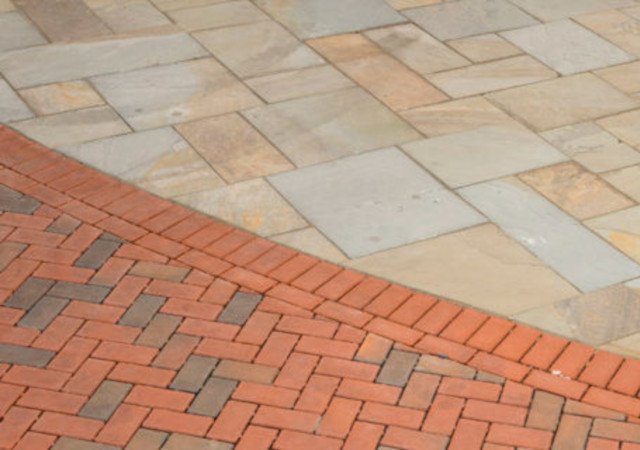Asphalt Vs Paver Stones

Asphalt and pavers are both popular choices for creating driveways, walkways, and other outdoor surfaces, each with its own set of characteristics and considerations. Here’s a comparison between asphalt and pavers to help you make an informed decision based on your specific needs:
Asphalt:
Advantages:
- Cost-Effective:
- Asphalt is generally more cost-effective than many other paving materials, including pavers.
- Quick Installation:
- Asphalt installations are relatively quick, and the material sets rapidly, allowing for faster use of the paved surface.
- Smooth Surface:
- Asphalt provides a smooth and continuous surface, making it suitable for activities like biking and rollerblading.
- Minimal Maintenance:
- Asphalt requires less maintenance than some other materials, and repairs are often simpler.
- Heat Absorption:
- Asphalt absorbs and retains heat, making it suitable for colder climates as it helps with snow melting.
Disadvantages:
- Cracking and Settling:
- Asphalt is susceptible to cracking and settling, especially in areas with freeze-thaw cycles or poor soil conditions.
- Limited Aesthetics:
- Asphalt has a uniform black appearance, offering limited aesthetic variety compared to paver stones.
- Permanent Repairs:
- Repairing asphalt may involve more extensive work, and repairs may not blend seamlessly with the existing surface.
- Oil Stains:
- Asphalt is susceptible to oil stains, and these stains can be challenging to remove.
- Resurfacing:
- Over time, asphalt may require resurfacing to address wear and tear.
Paver Stones:
Advantages:
- Aesthetic Variety:
- Paver stones come in a wide range of colors, shapes, and patterns, allowing for diverse design options.
- Durability:
- Paver stones are highly durable and resistant to cracking, making them suitable for high-traffic areas.
- Repairability:
- If a paver stone is damaged, it can be easily replaced without affecting the surrounding area, offering a cost-effective repair option.
- Flexibility:
- Pavers are flexible and can adjust to minor ground movement without cracking.
- Permeability:
- Permeable pavers allow water to pass through, reducing runoff and helping with water drainage.
Disadvantages:
- Cost:
- Paver stone installations are often more expensive than asphalt installations.
- Installation Time:
- Installing paver stones can be more time-consuming, especially for intricate designs.
- Weed Growth:
- The joints between paver stones may allow for weed growth if not properly maintained.
- Surface Unevenness:
- In some cases, the surface of paver installations may be uneven, making it less suitable for certain activities.
- Maintenance:
- While pavers are easy to repair, they may require more regular maintenance, including joint sand replacement and weed control.
Conclusion:
The choice between asphalt and pavers depends on your priorities, budget, and the specific requirements of your project. Asphalt is a more cost-effective and quicker option with a smoother surface, while paver stones offer greater aesthetic variety, durability, and repairability. Consider factors such as climate, design preferences, and long-term maintenance when making your decision. Additionally, consulting with a paving professional can provide valuable insights based on your specific needs.




